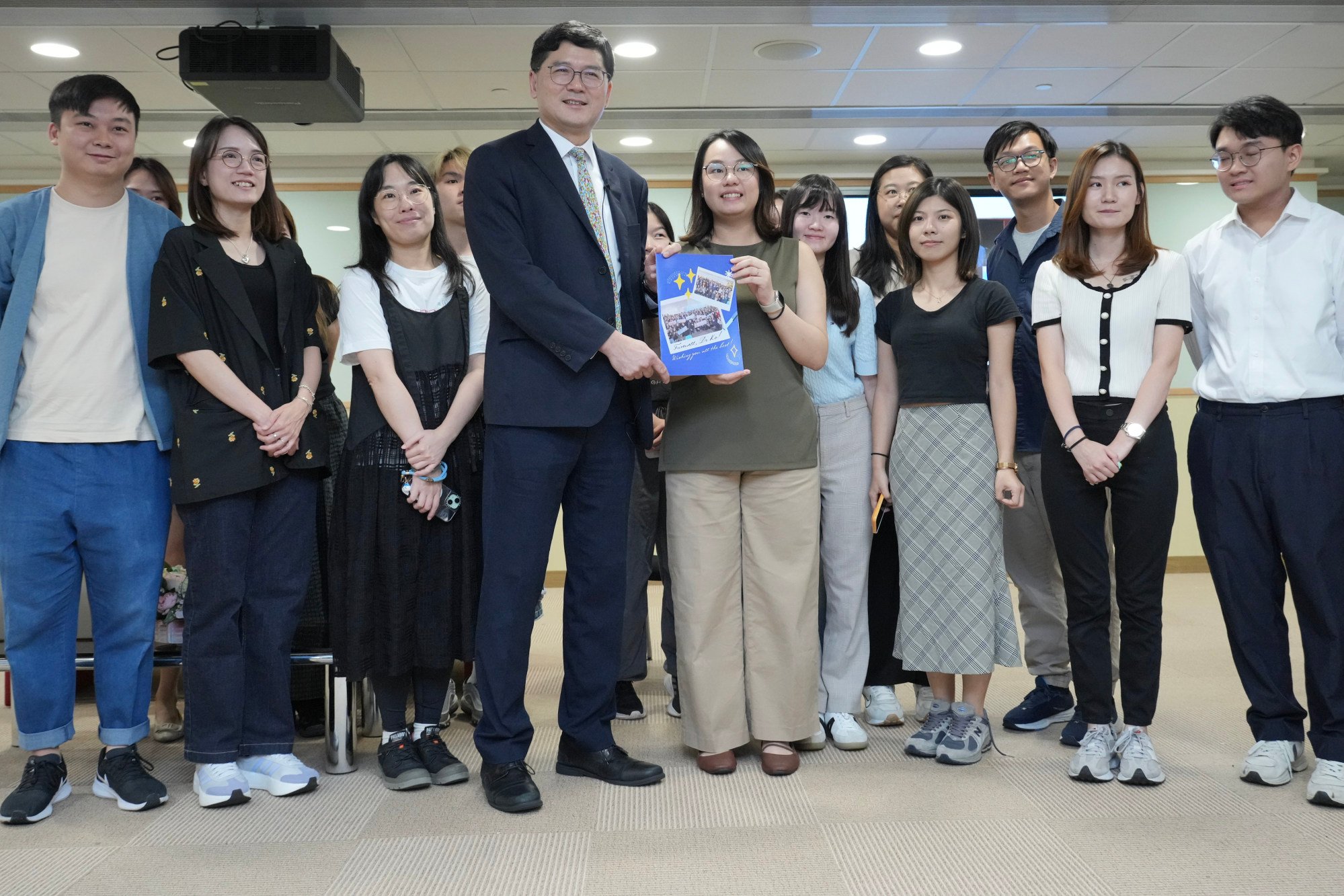The Hospital Authority's outgoing chief executive has said Hong Kong public hospitals are on the right path in terms of finances, manpower and infrastructure, with his term as the organisation's top man being a "complete and abundant" experience.
Dr Tony Ko Pat-sing, who will retire by the end of the month, described his past six years as a "joyful time" despite having to overcome challenges brought by anti-government protests and the Covid-19 pandemic.
"I feel reassured," Ko said on Thursday. "I feel our financial resources are stable, manpower is fine, our infrastructure - system, software, hardware and hospitals expansion plan - I think all are in place.
Do you have questions about the biggest topics and trends from around the world? Get the answers with SCMP Knowledge, our new platform of curated content with explainers, FAQs, analyses and infographics brought to you by our award-winning team.
"I view my six-year term as complete and abundant, and I feel joyful about it."
Staff shortages are a long-standing issue in public hospitals, but Ko said that healthcare manpower grew by about 10 per cent compared with when he assumed office in 2019.
Currently, there are about 320 non-locally trained doctors from more than 10 jurisdictions working in the city's public hospitals. More overseas-trained nurses have started to join, and the authority is planning to hire allied health professionals trained outside Hong Kong.
During the winter flu season, public hospitals struggle with a surge in demand for services that could result in patients waiting for 20 to 30 hours before they are admitted to a medical ward.
Ko said he believed the issue of long waiting times for admission during flu seasons had been resolved, as public hospitals had increased the number of beds and set up command centres in major facilities to monitor their capacity.
The 59-year-old geriatrician's work as the chief executive has come across several rough patches. When he took up the top job in August 2019, trust between authorities and the public was at its lowest point because of the anti-government protests.

Healthcare employees from public hospitals also staged workplace sit-ins to protest against what they said was excessive use of police force during demonstrations.
Then came the Covid-19 pandemic in 2020, which almost crippled the city's healthcare system for the following three years with a rising number of infections and deaths.
Post-pandemic, public hospitals continued to be plagued by incidents such as falling concrete slabs in wards and faulty equipment, and repeated medical blunders. This forced the authority to set up plans to review the maintenance of equipment and facilities, and push for reforms to improve accountability and safety.
"The pandemic was a big challenge. The duration was long and there were lots of patients," Ko said.
"But I also felt grateful that during the pandemic, people from hospitals and the government, as well as the whole community and patients, were very united.
"Now looking back, it seemed [handling] the pandemic was not as difficult as we thought."
Ko said most public hospital employees were happy, even during the pandemic.
If Hong Kong were to be hit with another pandemic, Ko said he believed the city's preparations would be better than most places, given its experience with Covid-19 and the outbreak of severe acute respiratory syndrome, or Sars.
Despite the challenges he faced, Ko said he saw no regrets in his role as he chose to see things positively.
As he prepares to pass the baton to Dr Libby Lee Ha-yun, the former undersecretary for health who had worked in the authority for years before joining the government, Ko said he believed she would be able to deliver quality services to the public.
He stopped short of commenting on his relationship with Lee, only saying he had "a good relationship with every colleague".
Looking ahead, Ko said he would be interested in taking up part-time teaching work in the city's two medical schools, and plans to see patients in a public setting occasionally.
He also planned to spend more time with his family members and teachers, and revisit German and violin classes.
Concluding his 35 years with the authority, Ko said that his philosophy in public service was to put aside self-interest.
"It is important to put aside personal interest when carrying out public duties," he said. "If there is personal bias, it will impact the bigger picture."
More Articles from SCMP
Philippine court stops VP Sara Duterte’s impeachment, raising ‘more questions than answers’
China on Thai-Cambodian conflict; Taiwan recall vote: SCMP daily highlights
Hong Kong property: home supply projected to drop amid market revival
AC Milan not jealous of Liverpool, boss Allegri says on eve of Hong Kong clash
This article originally appeared on the South China Morning Post (www.scmp.com), the leading news media reporting on China and Asia.
Copyright (c) 2025. South China Morning Post Publishers Ltd. All rights reserved.
Post a Comment for "Hong Kong public healthcare moving on right path: outgoing Hospital Authority head"